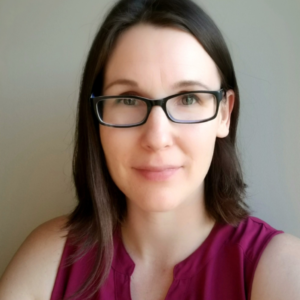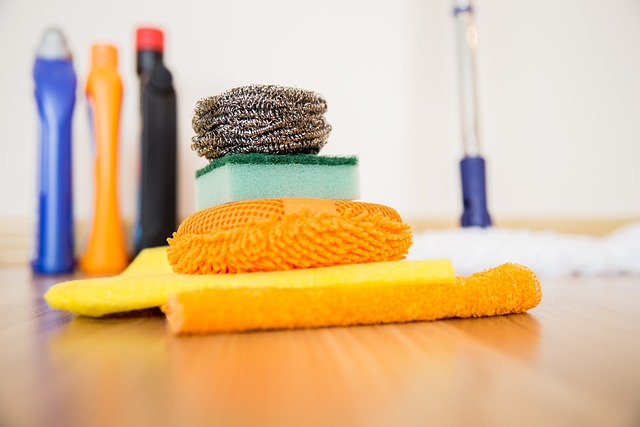Homeschooled kids need speech therapy sometimes too, but do you know where to go to get speech therapy help when you need it? Do you know where to look (besides the search engine on your phone’s browser of choice?) Are you wondering if your only option is private therapy? Does that sound, well, more expensive than curriculum? I’m a homeschool graduate and speech language pathologist who is passionate about helping homeschool families find their speech therapy fit, so these questions are ones I get a lot of practice answering. So, let’s unpack these questions together and add in some other insights specific to the great ole state of PA.
Does my child need Speech Therapy?
While a speech language pathologist can answer this question definitively (and can answer it better than most pediatricians I know), there are some great free or low-cost ways to get a better idea if an evaluation for speech therapy might be in your near future. The American Speech and Hearing Association has some great charts and blog posts of information on what both “typical” or expected development looks like in speech, language, feeding, voice, literacy as well as some “red flags” or indicators that a deeper look might be necessary. Keep in mind that when searching for milestones, it’s best to
1) go straight to the experts like at ASHA.org because even the brand-spanking-new CDC milestones for speech and language development were made without a contributing speech and language expert (SLP), and
2) keep in mind that a milestone is usually a marker for the bare minimum a child should be doing at that age.
If your “gut” and parental instinct still has a feeling that something isn’t making sense or that your child is struggling, I wouldn’t second guess that.
What does an SLP do to help homeschooling?
Oh man, I love this question! The field of speech language pathology is deep and wide (just like the song), and there are so many areas that homeschooling can benefit from speech language pathology research, resources, and intervention. Did you know that speech language pathology covers voice, feeding, swallowing, speech sounds, language development, literacy, organization, memory, attention, executive functioning, and more? If you have a child that has dyslexia, you may want a speech language pathologist. If you have a late talker, you may want a speech language pathologist. If you have a child that sounds scratchy, hoarse, deep, high, too quiet, too loud . . . you may want a speech language pathologist. We work with picky eaters and children that have feeding tubes or a history of choking and gagging, which is really different from what most folks think of when they think of speech therapy, like working with kids with lisps or trouble saying their “r” sound.
How do I get an SLP’s opinion without paying for an evaluation?
While a speech language pathologist does evaluations to provide a diagnosis, many SLPs offer free or low-cost general screenings for your area of concern. Sometimes just talking about your concerns during a free consultation will give you the information you need to feel right about moving forward with therapy or not. Local public schools with often evaluate children that are homeschooled as a part of “Child Find,” which is a part of Article 7, the legislation providing resources and protection for children with different needs through “Special Education.” Though I’ve heard from PA families that strong advocacy is often required, there can be options for free services through your local education agency (public school) if that is something you are comfortable with. Also, if you are located near a college or university that trains future speech language pathologists, sometimes screenings or evaluations are offered as part of research studies or as a training exercise for well-supervised SLP students at the undergraduate or graduate level. Depending on your location, this can be a great asset and can sometimes transition to ongoing therapy relationships with the SLP program (some university clinics even take insurance!). If you are comfortable, some homeschoolers opt into Medicaid-based services and can qualify based on income or “disability” though it may be wise to check size of waitlist for Medicaid-credentialed providers in your area so you can compare all the pros and cons together. The state program for early intervention in Pennsylvania is birth to five years and comes at no cost to families per the government site. You can ask for a referral directly through their online form or by calling the CONNECT helpline, 1-800-692-7288, without a pediatrician visit.
How do I get the BEST deal for speech therapy as a homeschooler?
You can get your best deal for speech therapy by really looking at the costs. Free programs might be a great fit, but if it costs you time on a waitlist or you must travel to find a credentialed provider, that might be a “cost” to consider. It really is family specific, so you are the best judge for that. Private therapy sometimes takes less time than public services, and when comparing prices, consider coinsurance, copays, and high deductibles too. Did you know that private pay rates are sometimes cheaper and sometimes more expensive? It depends on the clinic, and I recommend parents look at big clinics as well as the speech language pathologists that are “on their own” because sometimes they have less overhead or haven’t signed contracts with insurance companies that influence their rates. This may be especially important if you do not have speech therapy coverage. Ask for prompt-pay discounts and compare evaluation prices (cost upfront) to therapy prices (longer term cost) to make sure you are getting the “best deal” for you. Consider fit and whether you expect more progress faster due to an SLP specializing in what your child needs, or simply because you and the SLP work together really well, and they train you to practice better between visits.
Where do I get speech therapy at home resources and resources for homeschooling special learners?
You ready? We are going to make a list of some of my absolute favorite resources. Some are just “bonus” resources for homeschooling different learners that I refer to all the time.
- Sarah Collins Homeschool OT: She does homeschool consultations and has focus groups and resources for executive functioning, sensory, handwriting, and so much more. Her emails are worth reading because she packs in ideas and encouragement.
- Amy Bodkin Ed. Psych: She offers homeschool consultations, books, resources, and an online co-op for special learners. If you have questions about reading comprehension, dyslexia, hyperlexia, or anything else thinking and learning, she’s probably your girl or she knows someone who knows something.
- Cynthia Heren: She offers super insight into “outside of the box” ways to homeschool and get great mileage for your diverse learners in terms of resources and a community for families to connect.
- Teach Me to Talk: My favorite resource for late talkers, there are hundreds of hours of podcasts and videos that break down real speech therapy techniques for late talkers.
- Teachers Pay Teachers (resources by SLPs for SLPs): Some of my favorite free downloads are these, these, and these because they give you enough repetitions to see progress (if you are doing it right. Practice makes permanent, not perfect!). Just watch out for “speech therapy” tagged resources that were made by content creators that are not speech language pathologists. Sometimes it’s good, sometimes it’s more academic and less evidence based for therapeutic intervention. If in doubt, ask your SLP!
- Home Speech Home: I use their lists of words with speech sounds almost every day in my own sessions once a child is ready. Other work comes before words, but this is where I get my word lists for double checking for progress, finding new areas to work (without a big test), and making my list of five to six words for practice. Lists of five to six words of different “vowel contexts” are the sweet spot.
- YouTube: If you have videos in your home, I like aspects of these channels. Ms. Rachel for littles just learning language, Blippi for vocabulary in context, and the Peachie Speechie for instructions on how to make speech sounds (she has a book too!).
- MA Rooney Foundation: for free prek-3rd+ Orton Gillingham based curriculum and a really cool online flashcard feature.
Your SLP needs you, so advocate and collaborate.
As a homeschool parent, you know your child better than anyone AND you already have the teaching relationship being a parent comes with. Your speech language pathologist, wherever you find your fit and whatever private place or program you go through, needs YOU to advocate, to tell them the things they don’t know about your child and your family, to collaborate and run with what you learn from them in between sessions. Parents are the secret sauce to speech therapy success, and you are no exception. Expect to participate in sessions and to learn how to duplicate parts of therapy in between visits for more progress and more bang for your buck. Don’t worry about being “that parent” because speech language pathologists “know their stuff” and know that “you know your stuff” too. Come into the working relationship as a collaborator and your child will benefit. Homeschooling and speech therapy go together SO WELL and I hope this post helps you assemble the team, the resources, the things you need to help your child grow!



